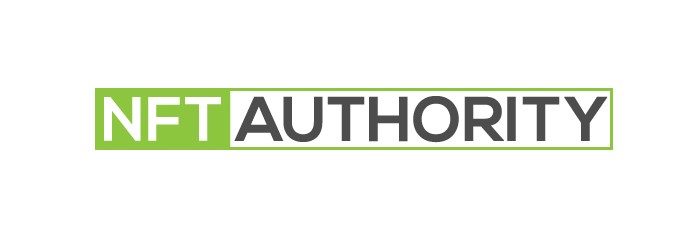Over time, we have all heard about blockchain technologies and other digital coins, especially cryptocurrencies like Ethereum and Bitcoin. Many beginners are asking themselves what blockchain technology is. It wouldn’t be wrong to say that blockchain is the platitude and is only growing. It’s safe to say that blockchain has become more user-friendly. So, if you want to get into details, we share what blockchain is and much more about it!
Understanding The Blockchain Technology
Blockchain is a method or process of recording information, which makes it challenging to change, manipulate, or hack the system. In addition, it is a distributed ledger that works on duplicating and disbursing the transactions across the network of computers participating in the blockchain. On the other hand, blockchain technology is defined as a structure that stores and organizes transaction records, also called a block.
It is the most popular type of cryptocurrency financial services company. These companies first started to operate the bitcoin blockchain in the year 2011; with the passage of time, cryptocurrency wallets surged to 28 percent of transactions from 2011 up to 2022. It also started to operate in cryptocurrency exchanges, providing different data charts and analytics in the institutional markets.
This blockchain is decentralized and based on digital ledger technology, which records the transaction of the assets across many systems. as a result, the transaction is not hacked, and data is safely stored within the system.
There are various blocks in the chain, which are in a network that’s connected with the help of a peer-to-peer node. In most cases, this storage is known as a digital ledger. Every transaction on the ledger is authorized with the help of the owner’s digital signature – it helps authenticate the transactions and prevents the chances of tampering. Subsequently, the information stored on the digital ledger will be entirely secure.
It wouldn’t be wrong to say that a digital ledger works as a Google Spreadsheet that’s shared with different computers on the network, particularly the spreadsheets where all the transactional records are kept, depending on the purchases. The unique factor is that anyone can see the data, but they won’t be able to change it, which eliminates the chances of data corruption.
The Reason Behind the Popularity Of Blockchain
Imagine you are transferring money to friends or family from a bank account; it’s needless to say that you will have to sign in to the online banking app and transfer the money to the other person with the help of an account number. Once the transaction is complete, the bank updates the transaction records – doesn’t it seem simple? Well, there is a slight caveat that we sometimes ignore. In particular, the transactions can tamper with pretty quickly, and people familiar with the truth avoid using the transactions.
For this reason, third-party payment apps have become popular, and this vulnerability created room for the development of blockchain technology. Technically speaking, blockchain can be defined as the digital ledger that’s gained much traction in the past few years. That’s because the record-keeping of transactions and data is an integral part of the business. In most cases, the information is handled or stored in-house or passed through third-party platforms, such as lawyers, brokers, and bankers.
All these third-party factors have resulted in increased time and cost for businesses. The best thing about blockchain is that it helps avoid such long processes and supports the faster movement of these monetary transactions, which is an excellent way of saving money and time. It’s common for people to assume that blockchain and Bitcoin are interchangeable terms, but the reality is quite different. That’s because blockchain technology can support different applications associated with the manufacturing, supply chain, and finance industries.
On the other hand, Bitcoin is a digital currency that depends on the blockchain industry. That’s because blockchain is an emerging technology with various benefits, such as;
- Secure – first of all, it utilizes the digital signature that helps ensure fraud-free transactions, which makes it impossible to change or corrupt the data of a person by other user if they don’t have the digital signature
- Decentralized – the users need the approval of regulatory authorities, such as banks or the government, for transactions. However, with blockchain technology, the transactions are complete with the mutual consent of users, which results in faster, smoother, and safer transactions.
- Automation – blockchain technology is programmable and can generate an array of systematic payments, events, and actions once the prerequisites are met.
How Does Blockchain Technology Operates?
If you have been active in the corporate industry, we are sure you have noticed that most businesses are now using advanced technologies like blockchain. However, many people are still clueless about how blockchain technology works. Needless to say, the advancements in the blockchain industry are in their infancy. Still, it also has a chance of becoming a revolution, which is why it’s essential to understand the framework and structure of the technology.
To begin with, three technologies are a part of blockchain technology, including the medium of computing, cryptographic keys, and a peer-to-peer network with a shared ledger. When it comes down, the cryptography key has two keys, including a public and private key. These keys are essential to complete the transactions between two parties. Every individual has these keys, which are used to produce the digital identity reference for security since security is an essential part of blockchain technology.
Regarding cryptocurrency, identity is formally known as a digital signature, and it’s essential for controlling and authorizing transactions. This signature is also merged with the network, which is a group of people who act as authorities – they reach a mutual consensus when the transactions are concerned. Also, when the peer-to-peer network authorizes the deal, it’s certified through mathematical verifications, resulting in a successful and secure transaction between the two parties. Blockchain users utilize cryptography keys to perform an array of digital interactions over the peer-to-peer network.
Types Of Blockchain
There are four types of blockchain out there, including;
- Private Blockchain
The private blockchain network operates on closed networks and works well for private organizations and businesses. The companies can utilize this blockchain network to customize the authorization and accessibility preferences and network parameters. All in all, only one authority is responsible for blockchain network management.
- Public Blockchain
The cryptocurrencies like Bitcoin originated from public networks, which played an essential role in popularizing the DLT (distributed ledger technology). Public blockchains are responsible for eliminating various challenges, including centralization and security challenges. In addition, the data is disbursed across the peer-to-peer network rather than in a single location. For this purpose, a consensus algorithm is utilized to verify the authenticity of the information.
- Permissioned Blockchain
Commonly known as a hybrid blockchain, the permissioned blockchain network is a private blockchain that offers unique access to specific users. Organizations can set up blockchains to achieve the best outcomes. It helps create a better structure to determine who can participate in the network and what type of transactions they can authenticate.
- Consortium Blockchain
This blockchain network has private and public components, except that various organizations will manage only one consortium network. It is essential to add that these blockchain networks can have a complex setup process but offer advanced security once it starts operating. In addition, they are perfect for collaboration with different organizations and businesses.
The Transaction Process
When it comes down to blockchain technology, it is perfect for confirming and authorizing transactions. For instance, if two people want to perform a transaction with public and private keys, the first person needs to attach the information of the transaction to the second party’s public key. All the information is collected on the block. The block includes the timestamp, digital signature, and other relevant information.
However, the block doesn’t have information about the individuals involved in the transaction. Consequently, the block is passed across the network nodes, and the end person can use the private key to complete the transaction. In addition to completing financial transactions, blockchain technology can also hold information about the transaction.
Pros Of Blockchain Technology
To begin with, blockchain technology offers maximum security to users, which means they can protect and secure sensitive information from online transactions. You can depend on blockchain technology if you are looking for convenient and efficient transactions. In addition, it takes a few minutes, but the complex transactions might consume a few days. On top of everything, there won’t be any third-party interference from government and financial organizations.
Cons Of Blockchain Technology
We have already added that cryptography and blockchain technology use private and public keys. However, there are some errors associated with private keys. That’s because if someone loses the private key, they will face various challenges, including scalability restrictions. For this reason, some transactions can take a long time to complete, and it is incredibly challenging to change the recorded information.
The Bottom Line
The bottom line is that blockchains can store information related to monetary transactions, but they also store information related to product tracking. This information is beneficial as you can easily trace the origin of an information leak, promising higher security for the data!


